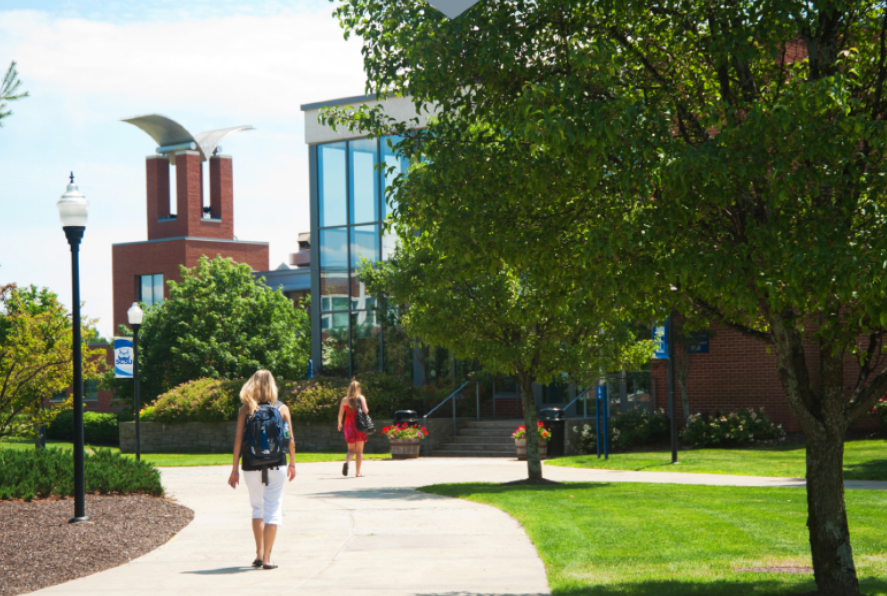First-time Analysis Stresses Economic Case for State Colleges, Universities
/A 103-page report analyzing the economic benefits of the 17 institutions of the Connecticut State Colleges and Universities (CSCU) system concluded that $11.1 billion, equivalent to 4.1% of the GSP of Connecticut, is attributable to the institutions. The components contributing to the bottom line conclusion are varied, and not limited to current students or activities on the campuses - included is $9.9 billion in "accumulated income" by "hundreds of thousands of ... former students ... employed in Connecticut," the report stated.
The institutions include the 12 community colleges, which the system has sought to merge into one institution, the four state universities, and the on-line Charter Oak State College. The University of Connecticut is not part of the CSCU system and was not included in the analysis. The report generally does not distinguish between the four universities - Central, Eastern, Southern and Western Connecticut - and the 12 community colleges in its presentation of the analysis. 
The economic benefits that the analysis indicates are attributable to the colleges and universities, as outlined in the report, include:
- “Some students are residents of Connecticut who would have left the state if not for the existence of CSCU. The money that these students spent toward living expenses in Connecticut is attributable to the institutions.” Around 3 percent of credit students attending CSCU originated from outside the state. Some of these students relocated to Connecticut to attend the institutions. The expenditures of relocated and retained students in the state during the analysis year added approximately $137.9 million in income for the Connecticut economy”
- “Over the years, students gained new skills, making them more productive workers, by studying at the institutions. Today, hundreds of thousands of these former students are employed in Connecticut. The accumulated impact of former students currently employed in the Connecticut workforce amounted to $9.9 billion in added income for the Connecticut economy”
- “Out-of-state visitors attracted to Connecticut for activities at the institutions brought new dollars to the economy through their spending at hotels, restaurants, gas stations, and other state businesses. The spending from these visitors added approximately $5.6 million in income for the Connecticut economy.” The report estimates that “over 73,000 out-of-state visitors attended events hosted by the institutions in FY
 2016-17.”
2016-17.”
The report goes on to explain that “Connecticut benefits from the education that CSCU provides through the earnings that students create in the state and through the savings that they generate through their improved lifestyles. To receive these benefits, however, members of society must pay money and forego services that they otherwise would have enjoyed if CSCU did not exist.”
In summarizing the “social savings” provided to the state by the CSCU institutions, the report stated that “In addition to avoided costs to the justice system, crime savings also consist of avoided victim costs and benefits stemming from the added productivity of individuals who otherwise would have been incarcerated. Income assistance savings are comprised of the avoided government costs due to the reduced number of welfare and unemployment insurance claims.”
Regarding the financial impact of the colleges and universities on its graduates, the report concluded that “for the certificate, associate’s and bachelor’s degree earner at CSCU this translates to an increase in earnings of $5,900, $12,800 and $37,200 each year, respectively, compared to a person with a high school diploma or equivalent working in Connecticut.” The analysis indicated that 1 out of 19 jobs in Connecticut is supported by CSCU activities and their students.
In announcing the results of the first-time study, CSCU President Mark Ojakian said “We knew our CSCU institutions provided incredible value to Connecticut and this report confirms it. A bottom line analysis was needed to understand what CSCU contributes to the state economy. Both students and taxpayers invest in our system and we have a clear picture now of that return on investment.”
The report was prepared for CSCU by Emsi, a Moscow, Idaho-based provider of economic impact studies and labor market data to educational institutions, workforce planners, and regional developers in the U.S.
































